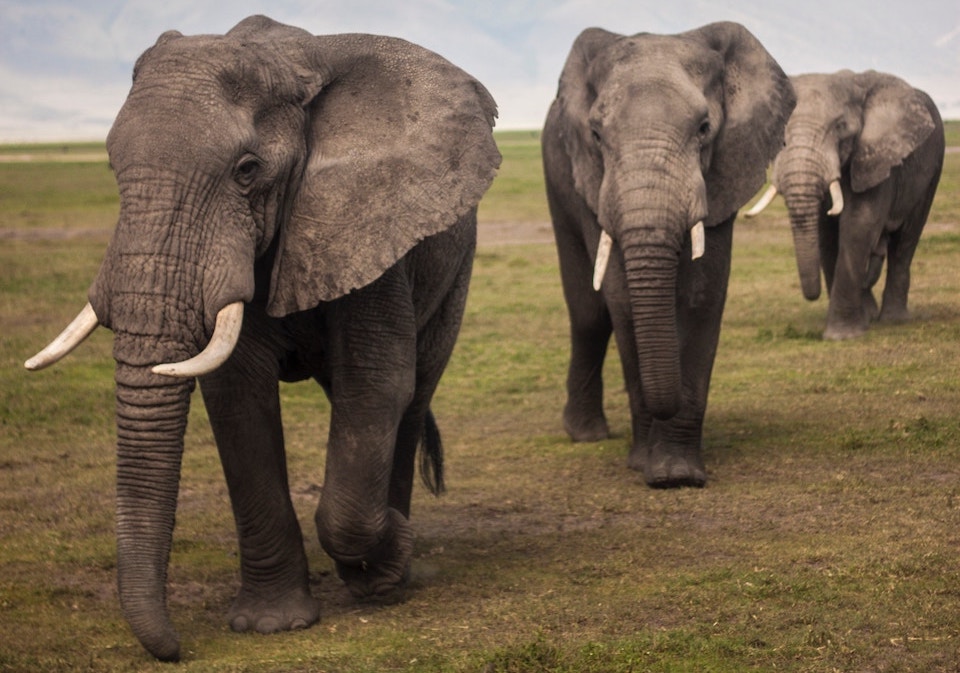
Botswana President Aligns Himself with Trophy Hunters, Ivory Traders
Southern African nation announces it will reverse the country’s five-year-old trophy hunting ban and also work to weaken the global ivory trade ban
- Wayne Pacelle
“All politics is local,” is a tire-worn phrase in the realm of elections and politics. The phrase captures a key truth of politics. But there’s more to politics than that, especially in a global economy where goods, businesses, currency, and people flow in and out of any community, state, nation, or region.
Botswanan President Mokgweetsi Masisi, looking to his re-election campaign in the fall and attempting to appeal to some rural communities in the north, is playing to local fears about wildlife conflicts and placating the voices who trumpet those fears. He’s also attempting to step on the legacy of his predecessor and political rival, former President Ian Khama, who was responsible for instituting the southern African nation’s landmark and foresighted 2014 policy of forbidding the killing of wildlife, including by foreign trophy hunters. In doing so, he’s poking a stick in the eye of the tens of thousands of foreigners who come to Botswana to appreciate wildlife and don’t want the animals gunned down. He may find that when it comes to eco-tourism, all politics is global.
Masisi not only announced he’s going to open Botswana’s gates to the trophy hunting clan, but he’s collaborating with Zimbabwe and Namibia in a collective effort to re-open the global trade in raw ivory. If he succeeds in both efforts, we can expect the trophy hunters and the poachers to hit the savannahs and the forests with their usual reckless abandon.
This is a dreadful and dangerous back-tracking on its national wildlife protection policy. People throughout the world who love wildlife should protest this awful decision. One way is to choose to take their tourism dollars to other countries when they want an African wildlife experience. They can go to Kenya to see elephants and great herds of wildebeest and zebras. They can go to Rwanda or Uganda to see mountain gorillas. And they can go to Gabon’s beaches and, if they are lucky, see an elephant and a whale where the land meets the sea.<
Masisi would do well to understand that in this era of social media, and increasing concern for the well-being of animals, that this could be a catastrophic economic decision. This terrible about-face will almost certainly harm the country’s large, lucrative, and surging industry of eco-tourism (already the country’s second biggest business).
Trophy hunters who trek to Africa don’t just want to bring home the tusks of an elephant or the head and mane of a lion. They snap pictures of their slain quarry and often then post the images on social media or share them with friends. This photographs and videos, once they inevitably get into the public domain, can then ricochet across the world in minutes. The series of grisly and heartbreaking images of the bragging hunters killing these defenseless and often imperiled animals have already tarnished and exposed the subculture of competitive trophy hunting. These foreign hunters coming in to African nations often amass a large number of kills seeking awards within the fraternity, such as the “Africa Big Five” or “Cats of the World.”
It was a single picture of Minnesota dentist Walter Palmer and his guide over the slain Cecil that provoked a worldwide outcry over the killing of one of the continent’s most famous and studied lions. Palmer had lured Cecil from Hwange National Park, and then shot and injured him before finally finishing him off 12 hours later.
After the Palmer incident, United, Delta, and American Airlines declared they’d no longer transport in their cargo holds the trophies of the Africa Big Five (a lion, a leopard, an elephant, a rhino, and a Cape buffalo). Air Canada, Air France, British Airways, Emirates Airlines, and dozens of others did the same, deciding they’d no longer be the get-away vehicles for the on-going heist of Africa’s greatest living resources.
Like any nation so dependent on tourism, the country must continue to earn the attention and affection of its prospective customers. As Americans, Britons, and others think about where they’ll spend their money to see elephants and lions, they will realize they have choices.
Apart from the offense to our values about animal welfare and conservation, the economics of trophy hunting just no longer add up. The network of trophy hunters bent on slaying rare species is in the thousands and shrinking, while the people content to simply watch the elephants and other wildlife and leave them be is in the millions and surging.
The U.S. Congress is considering legislation to permanently ban any imports of sport-hunting trophies of threatened or endangered species. That legislation would cover four of the five species that comprise the Africa Big Five. Australia, Austria, China, France, and other nations ban imports of elephant or lion trophies or both. That’s why Masisi’s decision is especially perplexing. The global community frowns on this animal parts trade, and he’s putting his larger wildlife-watching industry at risk to gain a small amount of commerce from the dwindling pool of trophy hunters.
If the eco-tourism industry shrinks, they’ll be less money in the pot to manage human-wildlife conflicts. Brisk tourism generates revenues for businesses and people, but also for the government.
The handful of nations that allow elephant trophy hunting, and other governments that enable that enterprise, are increasingly recognized as outliers. Botswana is compounding the damage by joining with the ivory-trading faction.
You can write President Masisi and let him know that his weakening of the country’s wildlife protection law will tarnish his reputation and his country’s in the world community. He can be reached at op.registry@gov.bw